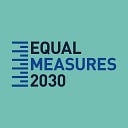Advancing Gender Equality: Leveraging the Sustainable Development Goals as we mark International Human Rights Day 2020
By Aarushi Khanna, Regional Coordinator Equal Measures 2030 and Paula Trujillo, Policy and Advocacy Advisor 2030

Sai Jyothirmai Racherla (Sai) Deputy Executive Director of ARROW, EM2030’s regional partner in Asia — does not see universal access to sexual and reproductive health and rights as mutually exclusive but rather mutually reinforcing and complementary. On this International Human Rights Day, we spoke to Sai. In this conversation, she tells us about the opportunities and experiences of feminist organizations engaging in international, regional, and national human rights mechanisms and frameworks to advance sexual and reproductive health and rights (SRHR) and ensure accountability for women’s and girls’ rights.

According to Sai Jyothirmai Racherla “the right to decide if or when to become pregnant — or whether to continue a pregnancy or not — is a fundamental human right which cannot be fulfilled unless duty bearers ensure universal access to sexual and reproductive health and rights. Similarly, preventable maternal deaths are a violation of the right to life, and reduction of maternal mortality ratio is a key SDG indicator”
For ARROW, the Agenda 2030 and human rights frameworks are inextricably linked. Achieving the SDG goals will pave the way to fulfilling, defending, and protecting all human rights to ensure the SDC principle of “leaving no one behind” which clearly leans on non-discrimination and equality.
“Despite resistance and difficulties [towards women and girls’ rights in the current political climate] these spaces have upheld gender equality and SRHR through persistent efforts of women, youth and LGBTIQ advocates” she explains.
ARROW — alongside with their partners including youth-led, youth serving, women led, LGBTIQ, and CSOs from across the Asia Pacific region — have engaged with the SDG process prior to its adoption in 2015. Together with other women’s rights organizations, they have worked tirelessly to contribute to the progressive gender equality-focused, sexuality-affirming language of the resolution, the goals, targets, and indicators. Together with partners, they engage at all levels in the SDG processes such as the Voluntary National Reviews (VNRs) of the High-Level Political Forum (HLPF) and the monitoring of the SDG Goal 5 on gender equality progress in 19 Asian countries.
Equally, EM2030’s regional partner in Asia engages regularly and systematically with the Human Rights Council (HRC), where they have seen affirmative responses around gender equality and SRHR. For example, the Violence Against Women (VAW) resolution in June 2015 had progressive SRHR and gender equality language and was the first ever UN resolution incorporating the term “comprehensive sexuality education”. Likewise, Sai notes, the 2018 UN annual resolution on Discrimination Against Women and Girls (DAWG) played an important role in calling for the development and enforcement of policies, good practices, and legal frameworks that respect the right to bodily autonomy “a crucial concept around SRHR, including on abortion, since the Beijing Conference”.
But where do data and evidence play a role in engaging with these mechanisms and processes? For ARROW this role is clear: their key strategy as an advocacy organization is to monitor governmental commitments to women’s health using rights-based and gender-sensitive indicators both in line with the SDGs and the human rights framework. ARROW uses data and evidence to measure progress, gaps and challenges around gender equality and SRHR in their countries of interest. This information helps hold governments accountable for their commitments made in international, regional and national norms, law and policy contexts. For Sai “data and evidence-based advocacy is crucial to the development of laws, policies and programmes [to advance gender equality]”.
So, what do organisations need to effectively use these mechanisms and galvanize the advocacy opportunities they represent?
“We need to establish [for example] formal communication [channels] between the HRC and the SDG annual follow up and review processes. Both processes should link up with each other to ensure human rights are protected, fulfilled, defended and respected for all equally and equitably and development is ensured in all its diversity and inclusiveness” she explains.
Human rights and sustainable development frameworks offer complementarities that can be harnessed. ARROW’s experience shows that these mechanisms are windows of opportunity that are being used by feminist organizations to support their national and regional advocacy strategies for the advancement of gender equality. Data and evidence collected locally and nationally are powerful tools that reflect the living reality of women and girls taking into account all their intersecting identities and therefore influence the design, implementation and monitoring of gender sensitive policies, laws and budgets that guarantee their human rights.
